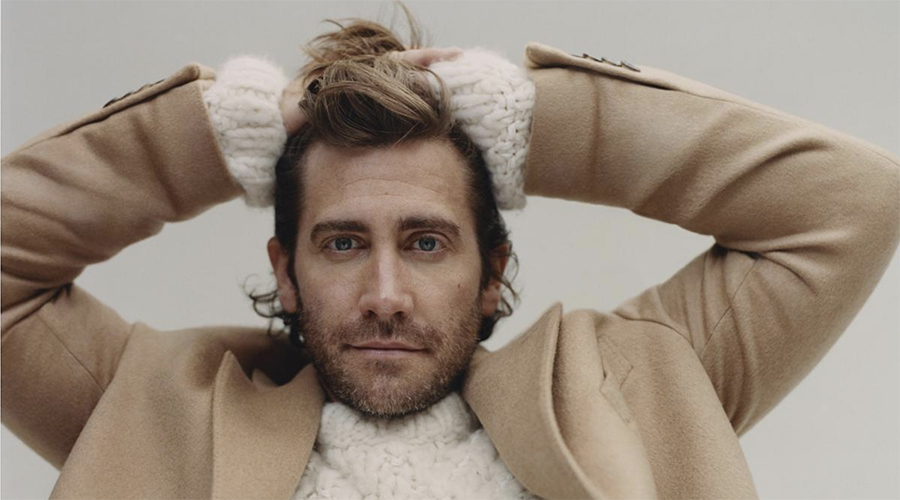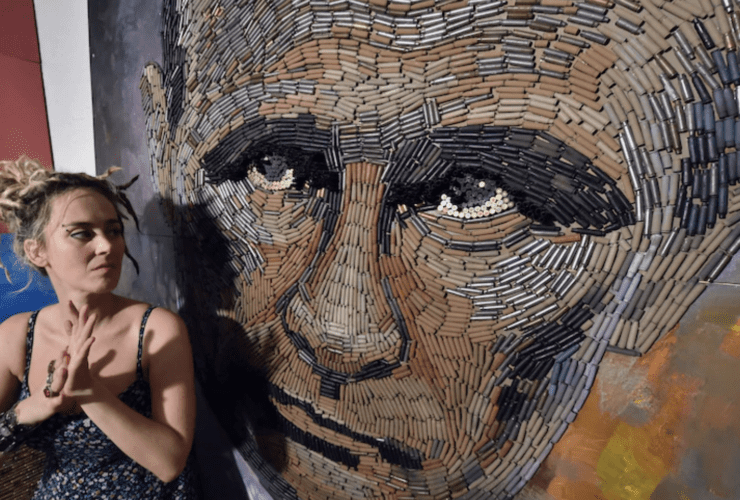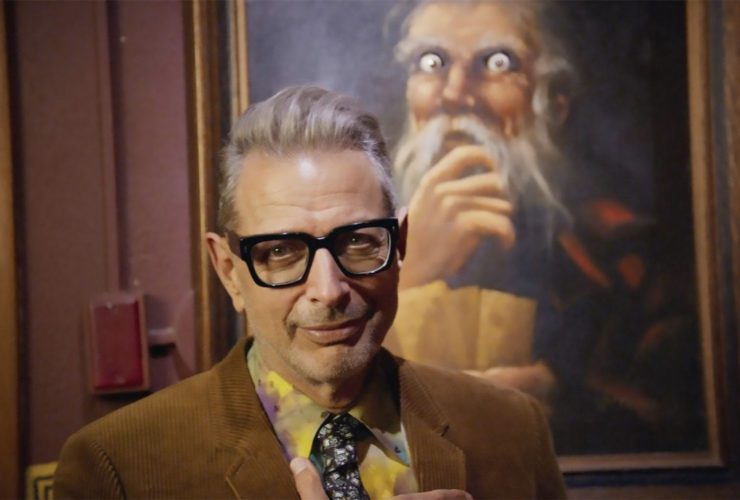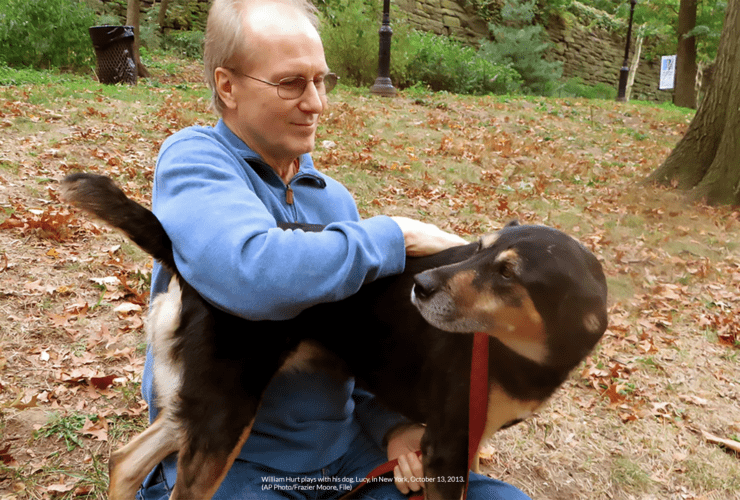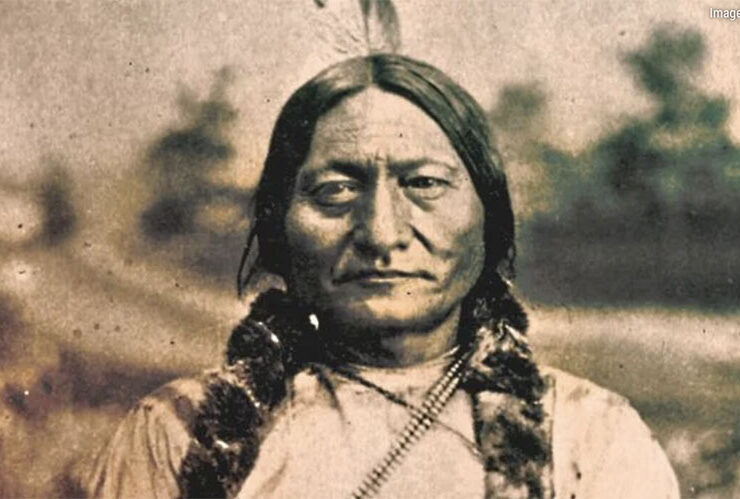The Hollywood actor turned 40 over lockdown — and found he was ready to do some deep thinking. He talks about what women have over men, being an uncle and, um, baked Alaska.
“I’m sorry we can’t be together in person because you’d be able to smell the bergamot,” says Jake Gyllenhaal as we talk over video chat, and he breaks into a cheeky smile. He is the face and body of the new Prada fragrance, Luna Rossa Ocean (you may have seen the advert, made by Johan Renck, the director of Chernobyl and Breaking Bad, in which a hot, rain-soaked Jake steers a yacht across a stormy sea), and we are discussing his interest in his own style — “an expression in one’s mind”, as he puts it — a subject he is keen to explore, but not for the reasons you might imagine. Of all the recent internet dramas about Gyllenhaal, one stuck in my mind: that apparently, he doesn’t wash enough.
So. That thing recently when you and various other celebrities made the news by saying you weren’t even into washing — what was that all about?
“I don’t know! I think someone asked me about my bathing routine — which I found to be a bit invasive. And so my response was that I do it all, sometimes. And what I got back was that I don’t bathe. That’s OK — I’ve never been accused of being smelly. It’s fine. Of course, I bathe. In the Luna Rossa scent, daily.”
The Oscar-nominated star of Brokeback Mountain has been having a long, hard think about his life while in lockdown. He turned 40 in December, and he has decided that, while he is “proud of my achievements, especially professionally,” he might have missed out on the more personal side of life. “I realized how much more fun I would like to be,” he says. “So that’s a big thing. I’m trying to push through that.”
He is currently sitting in an empty white room, wearing a plain white T-shirt, which creates a blankness that doesn’t do an entirely good job of helping me separate him from the often creepy, intense, inscrutable characters he plays in movies such as Nightcrawler and Jarhead. But he has changed. “There’s not a day gone by in the past two years that I haven’t cooked dinner at home or eaten in other people’s homes. Which to me has led to much deeper conversations, much longer evenings. Much more vulnerable conversations.”
Aided, no doubt, by all the episodes of The Great British Bake Off he has been watching. Yes, Bake Off. He mentioned he was a fan during the summer. Why? He says, thoughtfully, that it’s “always alluring to me to see what kind of ridiculous jokes are going to come out of the comedic hosts,” a sentence that makes me think we may have more work to do on his fun banter. So does he like to make a baked Alaska at home and watch it collapse in the oven?
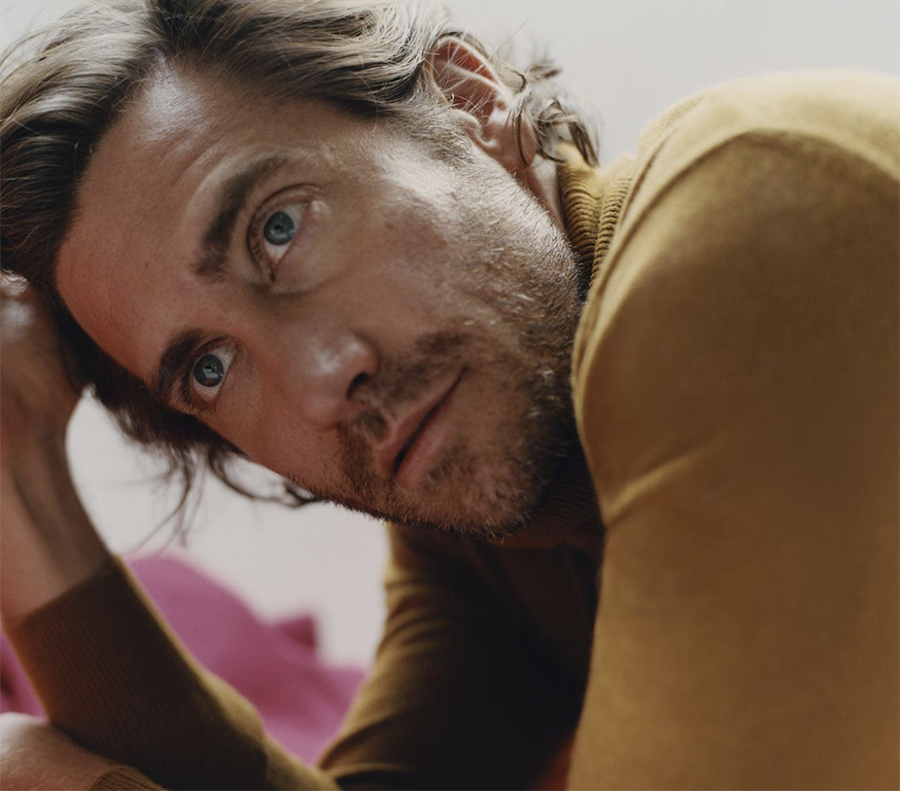
“I mean, yes, I do. I bake a ton at home.”
You do? You make baked Alaska?
“Oh, baked Alaska, that’s your fantasy. But if you want, I can make it for you, if we ever meet in person.”
Gulp. If they do another celebrity episode, will you go to Britain and be on it?
“Absolutely not. But I would ask Prue Leith to donate one of her pairs of glasses to a charity I work with, though. If she changed her prescription or something. Because her glasses are the best and every week I can’t wait to see which ones she’s going to wear.”
He is a real Anglophile at least and says he has, cumulatively, lived in London for several years of his life when shooting films, and he adores the leafiness, the trees. He loves walking his dogs here, “because you can let them off-leash. You can’t do that in a park in Manhattan, really, because of other people’s fears.”
His life awakening has involved committing to his duties as an uncle. Maggie’s two daughters are “truly, and I’m not just saying this because it’s an interview, two of the most incredible people. They come from a long line of incredible women and they’re even more incredible than the ones before them.” Soz, Maggie. Having spent most of their lives just seeing them in passing “at a dinner or a thing,” he decided it was time to step up his uncle game and start having them “coming to stay with me, you know when my sister and my brother-in-law need a break, and actually having the time to say let’s spend five days together. Getting to know them and watching them grow up and actually sitting and listening to their experiences and the things that they’re going through.”
He lets them be in charge and gives them freedoms they might not get elsewhere, “Because they are the farthest from being a handful that you could imagine. And they’re really not on their phones. Their father taught them a lot about the outdoors and the country, it’s very important to him. So they find trees more interesting than phones, which is a rarity.” But they watch your films, surely? “No!” he says, slightly horrified.
He mentions Greta Thunberg as an inspiring figure, and he has also been enjoying reading Rachel Cusk’s brilliant book of essays, Coventry, and believes that women “are superior to men” in various ways, including developing a sense of mortality earlier than men — he says it has only really just hit him that he won’t live forever.
Professionally, he has also spent some lockdown time working on a rather extraordinary film for Netflix, called The Guilty. It’s based on a Danish film he saw at the Sundance Film Festival and felt could be interestingly remade in an American setting, and he stars as a police officer who gets into a psychologically desperate situation while taking an emergency call from a woman who appears to have been abducted. I saw a preview and was on the edge of my seat for the duration.
We talk about his huge breakout roles Donnie Darko and Brokeback Mountain (for which he was nominated for an Oscar in 2006), both of which he remains very proud of. I ask if he thinks there would be a different reaction to two straight actors such as Heath Ledger and him getting cast in a big gay movie like Brokeback nowadays. He thinks about this and sighs.
“Aaah. I don’t know. Maybe? Part of the medicine of storytelling is that we were two straight guys playing these parts. There was a stigma about playing a part like that, you know why would you do that? And I think it was very important to both of us to break that stigma,” he says. “But then again I think that has led the way towards people saying, you know, people of all different experiences should be playing more roles, that it shouldn’t be limited to a small group of people.
And I believe that. But at the same time,” he pauses, decides to be bold, “I was very proud to be in that space and to be given that opportunity. And the reaction from the majority of the gay community when the movie came out, I got this sort of — we both did, everyone in the movie — we got this overwhelming sense of open-heartedness and gratitude.”
And do you talk to other actors about the fear of getting canceled?
“I don’t talk to a lot of other actors. I think we’re living in a time when nuance is not as appreciated, and it probably becomes inflamed by the fact that we’re not in person, not face to face, where so much more is understood. But I definitely stand behind all the movements that have happened, you know, I think we are in a massive transition.”
The Guilty is out on Netflix in October 2021.
